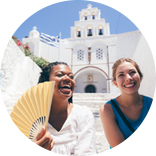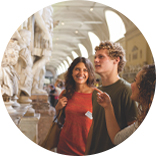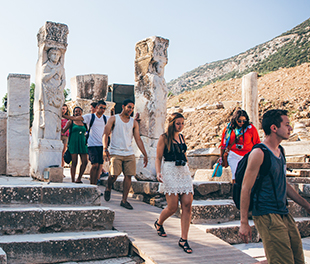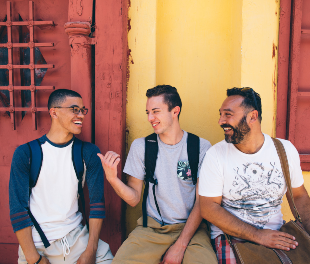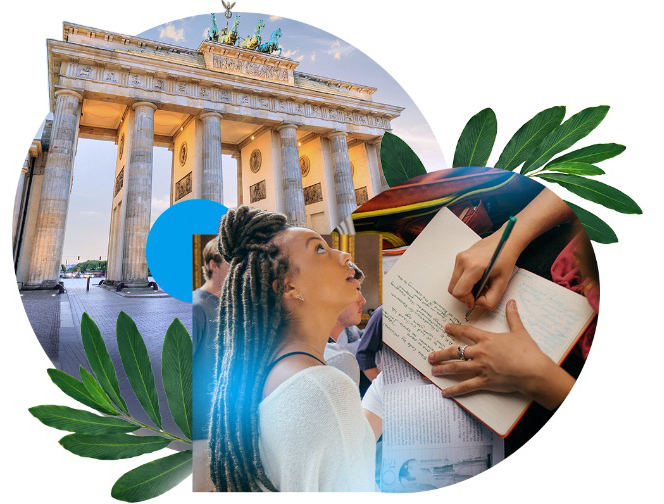
An educational and intentional approach to program design
Leading students on an EF Study Abroad program is more than just an incredible travel experience. When learners participate in our intentionally designed programs that leverage our Global Learning Model, they develop global competencies before, during, and after their in-country immersion—deepening learning and accelerating personal development.
Our approach to program design, developed in consultation with leading industry experts using best practices, is grounded in learning outcomes and includes academic resources, curated experiences, and assessments. Explore our approach and talk with a Program Consultant about how our programs can integrate with your learning goals.
Download our Educational Impact Report
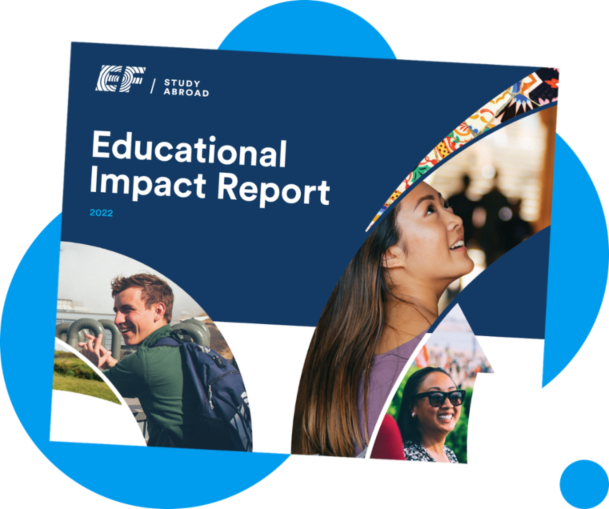
We are a quintuple-accredited learning service provider

The EF Study Abroad Global Learning Model
You get more when you work with EF. Our intentionally designed, experiential study abroad programs are rooted in our Global Learning Model which maximizes global competency development and accelerates personal growth.
-
Why: Preparing learners for their futures
Everything we do revolves around achieving our end goal: preparing learners for their future by developing key competencies within a thoughtful study abroad experience.
Learn about what's driving our vision -
How: Blending cultural and educational experiences with academic resources
By embracing the standards of good practice for learning, we use a blend of educational and cultural components, alongside academic resources, to maximize learning before, during, and after immersion.
See how we activate learning -
What: Itineraries tailored to unique learning needs
Our intentional program design translates across a wide variety of program types and format lengths, designed to flex to your unique learning outcomes and travel goals.
Explore what programs we offer
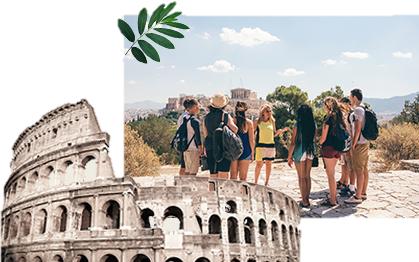
Building Global Competencies for a brighter future
When learners participate in our intentionally designed programs, they develop global competencies including confidence, curiosity, global knowledge, empathy, adaptability, relatability, and self-awareness. Development of these skills is the end goal we build our program structures around.
The development of these skills has been shown to accelerate success in all aspects of learner’s lives—promoting career growth, global citizenship, life readiness, and more.

The learner journey
On an EF Study Abroad program, you learn more about the world, yourself, and yourself in the world. The learner's study abroad journey begins by challenging assumptions and launching the experience with an open mind in order to gain global perspective, foster interpersonal relationships, and ultimately gain skills to navigate and make an impact in our ever-evolving world.
-
Growth mindset
Learners set their journey up for success by being curious and embracing new challenges with confidence and an open mind.
-
Global perspective
Learners can expect to gain exposure to various cultures to build global perspective and intercultural awareness.
-
Personal development
Learners can expect to enhance interpersonal skills to foster connection and collaboration.
-
Action & impact
Learners activate skills gained from their experience and apply them to all aspects of life (on repeat).
Blending cultural and educational experiences with academic resources
Experiential learning in the form of study abroad is naturally a powerful engine for growth. But at EF Study Abroad, we always strive for more—which is why our program design layers in additional educational and cultural elements, alongside academic resources, to round out and accelerate learning before, during, and after immersion (with a way to measure it all, too).

Pre-immersion
Prior to traveling, learners are given access to a variety of resources to help prepare them for their experience in-country, including goal sheets, journal prompts, webinars, and pre-travel discussion topics. We also deliver course planning resources for educators and an optional assessment to benchmark global competencies.
Learn more about the pre-immersion experience →
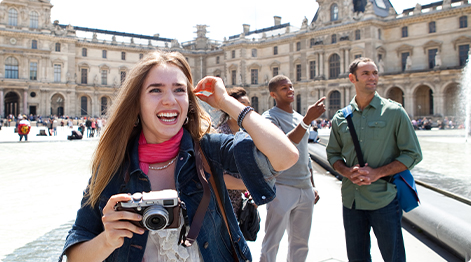
In-country
While on the ground, learners and educators have access to reflection prompts, discussion guides, journaling exercises, and more.
Additionally, each program includes intentionally designed guided learning, community engagement, and independent exploration components, which are all informed by subject matter experts.
Learn more about the in-country experience →

Post-immersion
After returning home, learners' journeys continue with access to assignments that tie the in-country experience to their academic, personal, and professional development, along with micro-credentialing. If groups opted in to the pre-immersion assessment, students will take a post-immersion assessment to measure the growth of skill development while abroad and demonstrate evidence of learning.
Learn more about the post-immersion experience →


